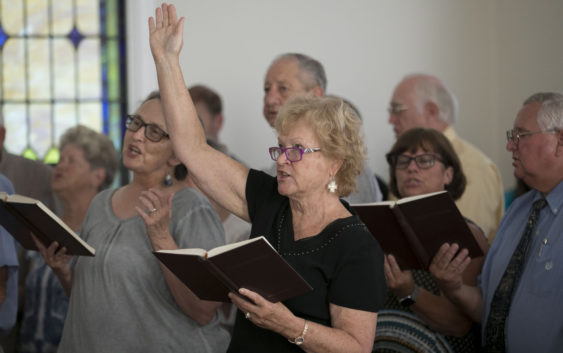- New video shows vehicles being swept away in historic, deadly flash floods in SA on June 12
- $40 million to go to underserved SC counties for Hurricane Helene recovery. Here's what you need to know.
- Family honors Air Force veteran Derwin Anderson Jr. after he died in June flash floods
- City of Wilmington addresses flooding on New Centre Drive
- Harnett County fire: Two homes damaged
The Triangle (mostly) dodged Florence. Now we need to help.

When disaster looms, we mobilize remarkable resources. Politics falls away, ever so briefly, and we remember that we’re one people, blessed with enormous capacity to do right by one another.
I was driving back from Tennessee a couple days before Florence made landfall, and I passed convoys of utility trucks from all over the southeast making their way toward the Carolina coast. I saw Red Cross vans from Arkansas, tree-removal trucks from Virginia, and emergency vehicles from dozens of jurisdictions, all headed east.
In the days since the storm, we’ve seen rescues by a Coast Guard crew from New Jersey, a swiftwater team from Los Angeles, and civilian volunteers from Texas and Louisiana. The national news has been filled with North Carolina accents, gracious and determined voices drawing attention to flooded towns.
Much of this effort is coordinated by government agencies, but a great deal more happens organically. Nonprofits mobilize, businesses pitch in for the greater good, neighbors share whatever they have.
The worst moments often bring out the best in people. Disasters can highlight “the resilience and generosity of those around us,” argues the writer Rebecca Solnit. “They demonstrate how deeply most of us desire connection, participation, altruism, and purposefulness.”
I hope we can keep that open-hearted spirit for the long road ahead. Some of the hardest work and deepest needs come long after the waters recede, the news trucks head home, and the adrenaline rush of emergency fades away.
Shelters and relief agencies were overwhelmed with volunteers and donations this week, but the call for toil and care will only grow in the months to come. Rescue is fast-paced and heroic, but recovery is grinding, unglamorous work.
Houses need to be mucked out. Drywall and shingles need to be hauled and hammered. Families need childcare and tutoring as they make up for lost school days.
I traveled to the Gulf Coast several times in the two years after Hurricane Katrina swamped New Orleans and wiped out whole towns along the Mississippi coast. The memories from those first devastated days are the most vivid, but it was the later trips that left the strongest impression.
That’s when I met volunteers who were in it for the long haul, the people who used their vacation time to clear debris, repair homes, or teach children so that parents could continue the slow work of rebuilding. I saw church youth groups spend their spring break to serve strangers. I met retirees who towed their own campers to the coast so they could spend months cleaning up a town they’d never seen before.
Most importantly, I heard story after story about churches rebuilt, libraries reshelved, and homes restored with money collected elsewhere. After Katrina, congregations all over the country held fundraisers for washed-out brethren they’d never met. School PTAs from distant districts pitched in so that other people’s children could replace waterlogged books and supplies. People who didn’t have construction skills sent money to support those who did.
Many of the communities inundated by Florence were struggling before the storm, and they’ll be struggling long after the insurance money runs dry and government grants run out. It’ll be up to civic organizations and civic-minded individuals to forge lasting ties with places in need.
For Triangle residents lucky enough to dodge the worst of this storm, humility demands we show up for fellow Tar Heels who weren’t so fortunate. There but for the grace of God go I, and all of us.
Community columnist Eric Johnson lives in Chapel Hill.